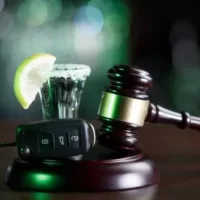You Have To Prove It: “Corpus Delicti”

To prove the offense of Driving Under the Influence the State has to prove two elements. First is that the defendant was driving or in actual physical control of a motor vehicle and second that the person was under the influence of an alcoholic beverage or drug to the extent their normal facilities were impaired.
Typically, in a DUI case, the defense is generally centered around the theory that the defendant is not impaired. Generally, speaking for most DUI cases, the defense is not that a person was not driving, since the majority of DUIs begin with a traffic stop and the officer seeing a person behind the steering wheel. However, there are defenses that can be used to counter the first element, which is was driving or in actual physical control, for example, improbability.
This article will focus on a “Corpus Deliciti” defense, or as it is commonly referred to as “Corpus.” Corpus Deliciti means the body of the crime and it requires the State to have independent proof of a crime before a prosecutor can use a person’s statements against them.
The State has the burden to present evidence that would show that the criminal charge was committed. This can come into play when a vehicle has been in an accident, yet no one saw who was driving nor is the driver behind the wheel with either EMS or law enforcement show up.
Law enforcement locates a person and begins an investigation in the crash, the person admits they were driving, but remember these statements are protected by the accident report privilege so they wouldn’t be admissible against the person in a criminal proceeding. So now the officers move into a criminal investigation and read the person their Miranda warnings and again the person admits to driving.
Usually, an incriminating statement post-Miranda is admissible as evidence against a person. However, if the officer in our example has no other evidence that the person who admitted to driving was driving, for instance DNA on an airbag, a wheel witness, fingerprints, etc. Then that admission/statement that they were driving could be deemed inadmissible by the court. Meaning there would be no evidence to prove the first element of Driving Under the Influence beyond a reasonable doubt.
Let Meldon Law Fight Your DUI Charges
If you were arrested for a DUI in South Florida, our experienced DUI defense attorneys will ensure that the police did not violate your rights against self-incrimination—and if the state tries to use such inadmissible evidence or otherwise lacks sufficient evidence to convict you, we’ll work toward getting your charges dismissed. Contact our skilled legal team at Meldon Law online or call at 800-373-8000 for a free case evaluation to learn about your rights and discuss your next steps.




